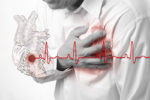Feeling tired, thirsty, excessively hungry and itchy? These symptoms may not seem like they could be connected, but fact is, they are all possible signs of diabetes. If you’ve been experiencing certain symptoms linked to this illness and you’re concerned, browse through our list of 17 Signs You Have Diabetes below in order to get a clearer view on this condition.
Headaches

Headaches are a sign of many illnesses, but more often than not, they are nothing to worry about and simply a part of a stressful, busy life. However, if you’ve been experiencing more frequent headaches, as well as stronger, more intense pains or simply a different kind of headaches recently, then you might want to take what your body is trying to tell you. Basically, headaches can be the result of both high and low levels of glucose in your blood, which usually indicate diabetes or pre-diabetes. In any case, mention your recent headaches the next time you visit your doctor in order to rule out any major illnesses.
Pain and / or Numbness in Your Feet or Legs
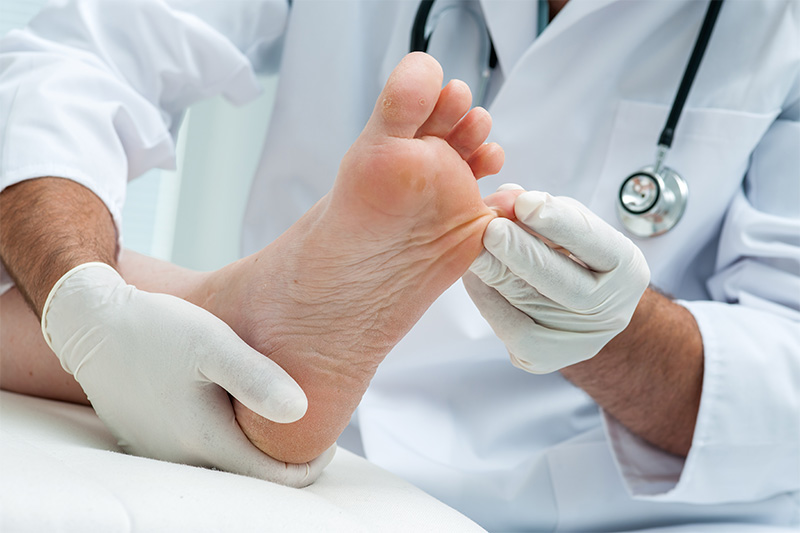
This is another one of those symptoms that people rarely associate with a metabolic condition such as diabetes. In case you deal with this symptom several times a week or even multiple times a day, you might want to look into it. Numbness in your feet, as well as in your legs, can be a sign of nerve damage. In some cases, people that struggle with diabetes develop nerve damage and they experience loss of feeling or tingling in various parts of their body.
Nausea and Vomiting

While this symptom is usually typical (although not very common) to the patients that suffer with Type 1 diabetes, type 2 sufferers occasionally complain of feeling nauseous as well. Why does it happen? Your body is capable of producing ketones, which are chemicals that result when the body breaks down the fat in order to obtain energy. When the body produces too many ketones, the patient can develop a condition known as diabetic ketoacidosis – as a result, the body becomes more acidic and it creates an upset stomach / nausea.
Fatigue
Feeling weak, tired and just lacking energy in general? While chances are you are simply lacking sleep or you are experiencing some mild season-changing asthenia, there are also significant illnesses that present this particular sign as one of their main symptoms – and diabetes is one of them. If you are perpetually void of energy, sleepy to the point of not being able to keep your eyes open even after having 8 hours of sleep a night, then you might want to opt for some medical investigations. When diabetes is involved, fatigue appears as a result of your body not receiving the proper amount of oxygen, and that happens because the high blood sugar levels slow down your circulation.
Bad Stomach Cramps

In addition to feeling nauseous and vomiting, stomach cramps are another less known sign of diabetes. But before you rush to drawing undesirable conclusions, know that stomach cramps are usually a sign of nothing serious – however, if you are experiencing severe pain that prevents you from performing your daily activities, then definitely pay attention to this symptom. When associated with this illness, bad stomach cramps can be the sign of diabetic gastroparesis, a condition in which your digestive processes are delayed, therefore causing severe abdominal pain, distention and serious bloating.
Yeast Infections
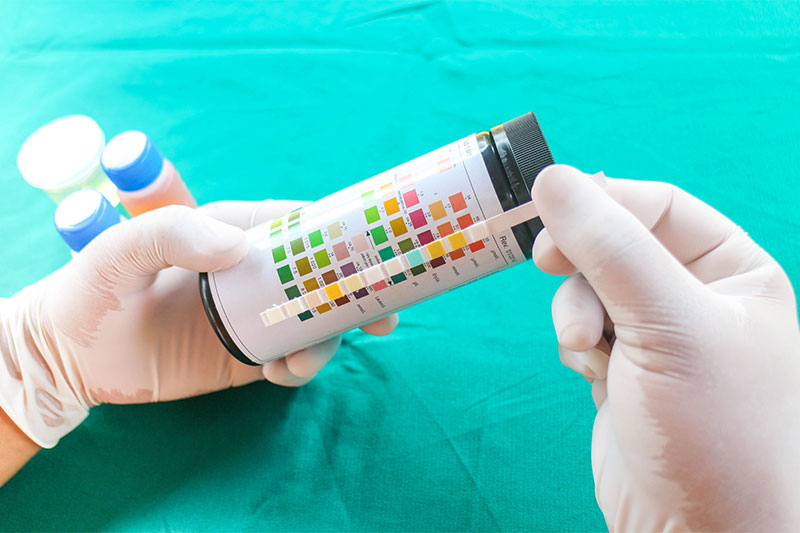
When your body produces too much glucose as a result of high levels of sugar in your blood, you get a surplus that becomes the feeding source for yeast. And since yeast depends on glucose to survive, you develop yeast infections quite easily. Both men and women can be affected by this condition, but few think that repetitive yeast infections might signify diabetes. Usually, yeast infections appear in places that are moist, warm and hidden, such as: under the breasts, between the fingers or toes and, of course, on and around the genitals.
Slow-Healing Sores or Cuts
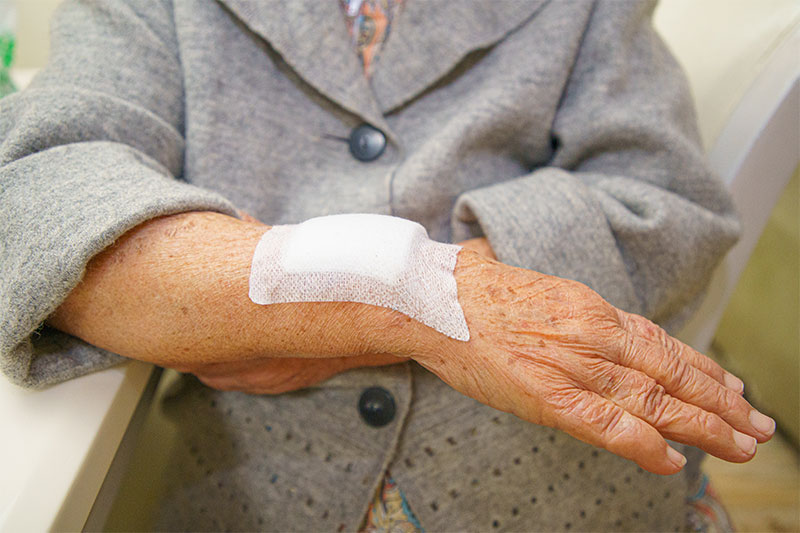
Did you recently notice that it takes a very long time for the cuts and sores on your body to heal? If even a small cut stays on your skin for weeks at a time, then it might be a sign that something is wrong. How are diabetes and slow-healing cuts connected? Basically, when your body has high levels of glucose, your blood circulation is immediately impaired, as it becomes much slower and you develop nerve damage – as a result, the blood simply cannot reach the body parts affected by various cuts fast enough in order to heal them properly.
Breath That Smells Like Acetone

Have you noticed that your breath smells different lately? If you would describe the smell as extremely sweet and fruity, then you might be dealing with diabetes or prediabetes. Even more so, if your breath smells like nail polish remover, then this is a clear sign that you are dealing with very high levels of ketones. Ketoacidosis is the result of the spontaneous decomposition of acetoacetic acid, which results in an odor very similar to the one of acetone. Talk to your doctor when experiencing an overly sweet breath and taste in your mouth in order to put your mind at ease.
Patches of Darker Skin
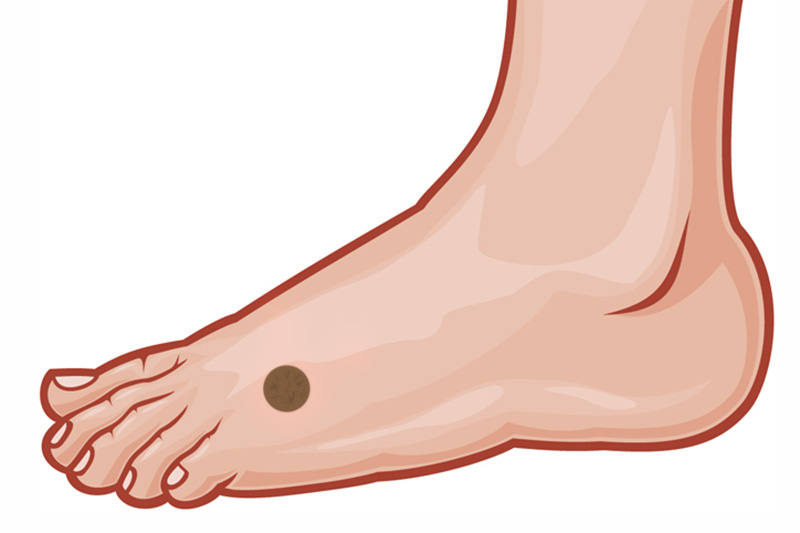
Diabetes, like many other serious conditions, comes with a variety of symptoms, some even of dermatological nature. If you notice any changes concerning your skin, especially dark patches in areas that present creases and folds and you are worried about diabetes, then a doctor appointment is recommended. These dark patches are caused by high levels of insulin in your bloodstream, which usually indicates the existence of a metabolic illness such as diabetes. In most cases, these patches are not only different in color, but they also present a velvet-like texture.
Irritability

Irritability can be a sign of diabetes, for sure, but it is also the sign of many other health and mental health conditions, as well as lifestyle changes that are not of significant medical importance. However, if you are already experiencing typical diabetes signs, such as increased thirst and urination and excessive hunger and you are wondering whether irritability is a concerning factor as well, then yes, it is. Low glucose levels can cause a wide range of symptoms from mood swings to anxiety and from impaired judgment to dizziness and apathy, as well as weak coordination.
Blurred Vision

One of the more common signs of diabetes is represented by blurred vision. Not only is impaired vision an initial sign, but many diabetic patients suffer with this symptom the moment they start insulin treatments. High blood sugar levels can damage your body in various ways and one of them is represented by deficitary vision. In addition to that, even low levels of glucose, also known as hypoglycemia can cause the same symptom. If you’ve been experiencing blurred vision over the course of several weeks and you have ruled out ophthalmological problems, then continue your investigations by paying a visit to a metabolic doctor.
Itching

Many patients that struggle with diabetes or prediabetes experience this common symptom: localized itching. The body parts that are mostly affected are the limbs (especially the lower parts of your legs), as well as the genitals. Diabetes is a known factor in causing dry skin as well as yeast infections, which both lead to itching – but even more so, poor circulation is mainly responsible for this symptom. If you are experiencing constant localized itching and, despite paying a visit to a dermatologist, the sign persists or comes back repetitively, then you might consider the possibility of dealing with diabetes.
Unexplained Weight Loss
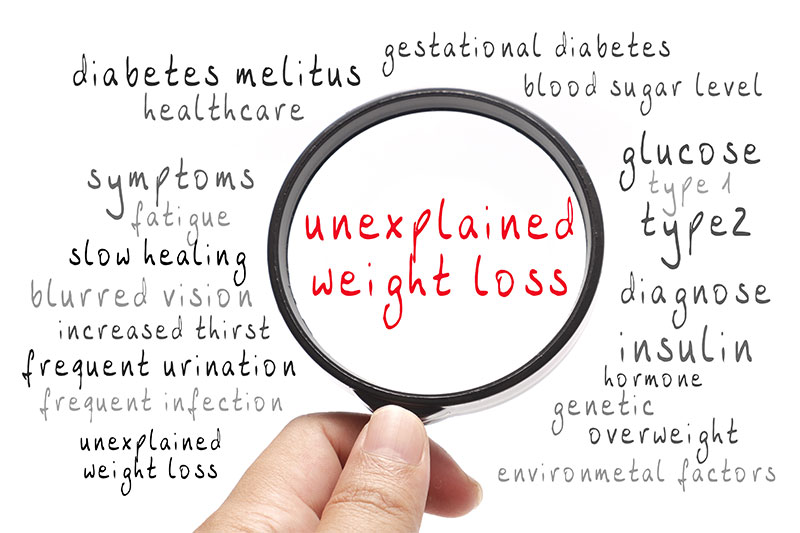
You’ve been eating a lot, even more than usual, yet you are experiencing weight loss. Despite your midnight chocolate cake binges and extra portions of fries and pizza, you are losing weight – and rapidly so. Unexplained weight loss is one of the most common symptoms of diabetes and since it is an easily noticeable sign, many people get concerned and visit their doctor once it occurs. Sudden weight loss is related to diabetes in the sense that insufficient levels of insulin result in the body needing its own cells to use as energy – and these cells are usually muscle or fat cells.
Dry Mouth
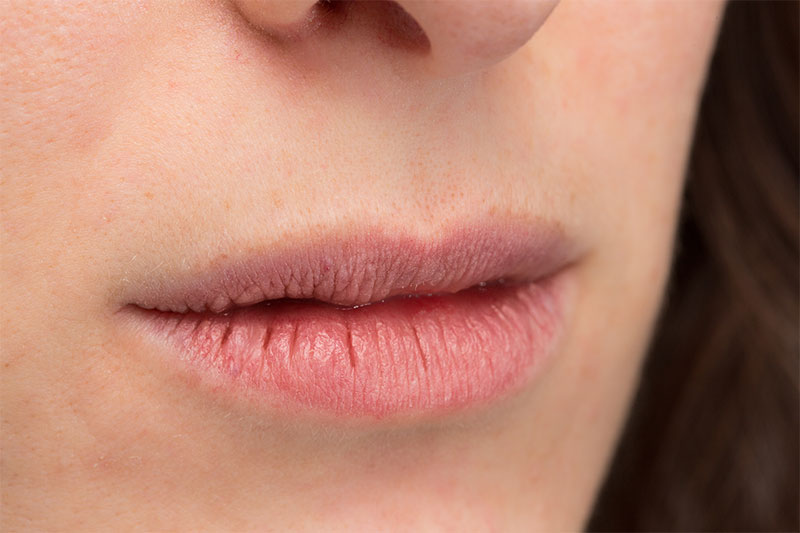
If you are experiencing this symptom, but not the other more typical or specific signs of diabetes, then you are probably not diabetic and you are simply in need of extra hydration. But if your dry mouth comes with several other diabetes signs such as frequent urination, itching and yeast infections, then it might be time to consult a specialist. Diabetes causes not only a dry mouth feeling, but also dry skin and the constant need of drinking water – and these all occur because of excessively high blood sugar levels.
Frequent Urination

Are you visiting the bathroom more often than usual? Do you find yourself in need of taking a bathroom break every half hour? Frequent urination, also known as polyuria is the result of drinking more liquids than required – and that is the consequence of increased thirst (also a sign of diabetes). This symptom appears as an effect of the excess sugar in your blood, which determines the kidneys to work more in order to absorb the glucose. As a result, you need to visit the bathroom excessively; if this symptom persists more than a week, do not hesitate to contact your doctor.
Increased Hunger

Increased hunger, also known as hyperphagia, is one of the most common signs of diabetes, besides increased thirst and excessive urination. If you find yourself reaching for that second portion more often than not and if you do not seem to ever get full and feel hungry immediately after eating, despite consuming appropriate amounts of food, then this is a clear sign of this metabolic condition. Moreover, if despite your increased hunger and your excessive food binges, you are losing weight, then that is a clear sign that something is wrong and it requires a medical visit as soon as possible.
Increased Thirst
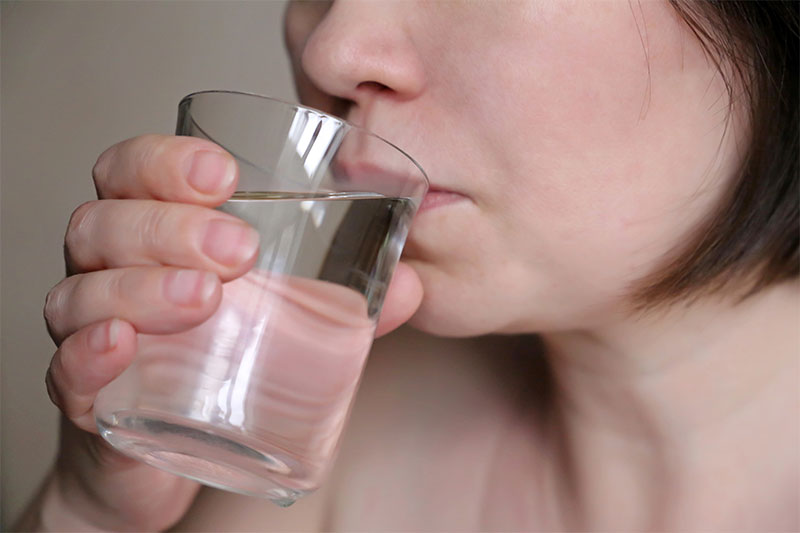
Drinking lots of water, yet constantly feeling thirsty and dehydrated? As established above, increased urination is a common sign of diabetes – and that is the immediate result of drinking too many liquids. The need to drink more than 10-12 cups of water / day is usually a sign of your kidneys doing extra work and trying to filter the excess sugar in your system. If you are consuming 20 or so cups of water a day, this may be a clear sign of diabetes, so make sure you book an appointment with a doctor in the near future.

